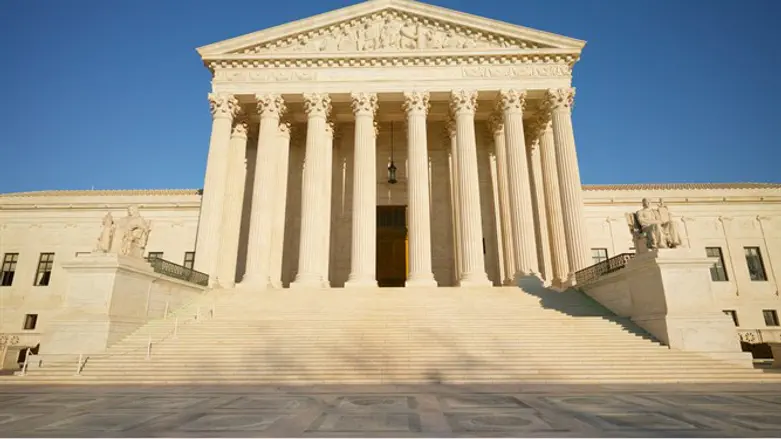
Firstly, in the DC Court of Appeals order dated August 5, 2020 setting the oral hearing, the order read: “the parties be prepared to address at oral argument the effect, if any. Of 28 U.S.C. section 455(a) and 455(b)(5)(i) on the District Court’s judges’s Fed. R. App. P. 35(b) petition for en banc review.” 28 U.S.C. Section 455 “Disqualification of justice, judge, or magistrate judge”
a and b(i) state:
“(a) Any justice, judge, or magistrate judge of the United States shall disqualify himself in any proceeding in which his impartiality might reasonably be questioned.”
And:
“(b)He or his spouse, or a person within the third degree of relationship to either of them, or the spouse of such a person:
(i) Is a party to the proceeding, or an officer, director, or trustee of a party;”
Secondly, by definition, the sole authority for Judge Sullivan’s hiring the “new prosecutor” is Judge Sullivan himself. Therefore, by definition, the “new prosecutor” is both Judge Sullivan’s hired attorney, and new prosecutor at the same time. Clearly, the “new prosecutor” is acting as Judge Sullivan’s attorney in the case and must be immediately disqualified under Section 455 (b)(i).
But thirdly, additionally, if the “new prosecutor” is somehow acting as an independent litigating authority in the General Flynn case, Judge Sullivan has already been extensively engaged in secret undisclosed, unlawful, and mandatorily disqualifying communications with the “new prosecutor.”
The Federal Canon of Judicial ethics outlines when a Federal Judge can engage in ex parte communications.
“Canon 3: A Judge Should Perform the Duties of the Office Fairly, Impartially and Diligently
The duties of judicial office take precedence over all other activities. The judge should perform those duties with respect for others, and should not engage in behavior that is harassing, abusive, prejudiced, or biased. The judge should adhere to the following standards:
(A) Adjudicative Responsibilities.
(4) A judge should accord to every person who has a legal interest in a proceeding, and that person’s lawyer, the full right to be heard according to law. Except as set out below, a judge should not initiate, permit, or consider ex parte communications or consider other communications concerning a pending or impending matter that are made outside the presence of the parties or their lawyers. If a judge receives an unauthorized ex parte communication bearing on the substance of a matter, the judge should promptly notify the parties of the subject matter of the communication and allow the parties an opportunity to respond, if requested. A judge may:
(a) initiate, permit, or consider ex parte communications as authorized by law;
(b) when circumstances require it, permit ex parte communication for scheduling, administrative, or emergency purposes, but only if the ex parte communication does not address substantive matters and the judge reasonably believes that no party will gain a procedural, substantive, or tactical advantage as a result of the ex parte communication;
(c) obtain the written advice of a disinterested expert on the law, but only after giving advance notice to the parties of the person to be consulted and the subject matter of the advice and affording the parties reasonable opportunity to object and respond to the notice and to the advice received; or
(d) with the consent of the parties, confer separately with the parties and their counsel in an effort to mediate or settle pending matters.
Under Canon (A)(4)(a) and (b), Federal Rules specifically delimits when a Judge can engage in ex parte communications:
Ҥ 76.15 Ex parte communications.
(a)Generally. The Judge shall not consult with any party, attorney or person (except persons in the office of the Judge) on any legal or factual issue unless upon notice and opportunity for all parties to participate. No party or attorney representing a party shall communicate in any instance with the Judge on any matter at issue in a case, unless notice and opportunity has been afforded for the other party to participate.
(b)Sanctions. A party or participant who makes a prohibited ex parte communication, or who encourages or solicits another to make any such communication, may be subject to any appropriate sanctions. An attorney who makes a prohibited ex parte communication, or who encourages or solicits another to make any such communication, may be subject to sanctions, including, but not limited to, exclusion from the proceedings.”
There we have it Judge Sullivan has hired a “new prosecutor,” and has made the “new prosecutor” an actual party to the case, Judge Sullivan’s communications with his “new prosecutor” have already grossly violated Section 76.15 and Canon Sections (A)(4)(a) and (b).
Finally, Judge Sullivan’s “new prosecutor” is not an “independent expert” under Canon (A)(4)(d), but, in fact, has been made by Judge Sullivan as an actual “party” to the litigation on whom Judge Sullivan has conferred standing in the court to actually argue the merits of the law in front of Judge Sullivan himself. Therefore, Canon(A)(4)(d) cannot apply to protect Judge Sullivan’s gross ex parte communications with his un-independent personal “new Prosecutor.”
In conclusion, Judge Sullivan’s egregious disqualifying ex parte communications with his “new prosecutor” in explicit derogation of the law, highlight Judge Sullivan’s seemingly obvious personal bias and animus against General Flynn. Additionally, the ex parte communications serve to prove the inherent unconstitutionality of Judge Sullivan’s actions. Either reason requires Judge Sullivan to to be immediately disqualified from the case, and for the case against General Flynn to be forthwith permanently dismissed with absolute prejudice.